From March 30 to April 1, 2024, the BRICS Skills Standards Development Workshops for the group standards in Additive Manufacturing, Industrial Design Technology, UAV Operation, and Augmented and Virtual Reality were successfully held at our Academy.
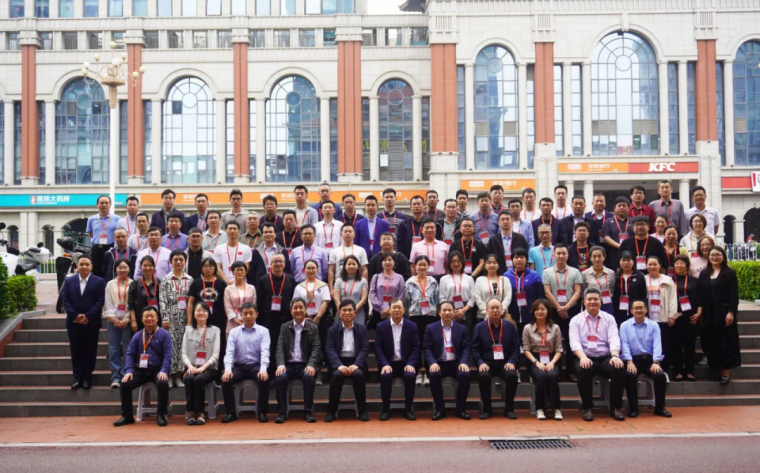
This workshop invited a number of distinguished experts, including Dr. Liu Zhenying, President of the International Alliance of Skills Development for Belt & Road and BRICS; Zhou Ming, expert in the revision of the National Occupational Classification of China and former Deputy Director of the Education and Examination Center of the Ministry of Industry and Information Technology; Professor Zhao Zhiqun, vocational education expert from Beijing Normal University and President of the International Network on Innovative Apprenticeship (INAP) Council; Cheng Lvsha, expert from the Additive Manufacturing Standards Drafting Group and Associate Professor at Shenzhen Polytechnic University; Pan Changchun, expert from the AR/VR Standards Drafting Group and Deputy Director of the Virtual Simulation Training Center of Zhejiang University; Professor Yang Lin, expert from the Industrial Design Technology Standards Drafting Group at Guizhou Equipment Manufacturing Vocational College; and He Xiwu, Vice Dean of the School of Mechatronics at Wuhan City Polytechnic and expert from the UAV Operation Standards Drafting Group.
The sessions also featured training provided by He Yong, Executive Dean, and Li Ang, Vice Dean of the Beijing Qixueyan Academy of Educational Science and Technology, aimed at standard development units and educators on the competition, skill, and curriculum components of the group standards.
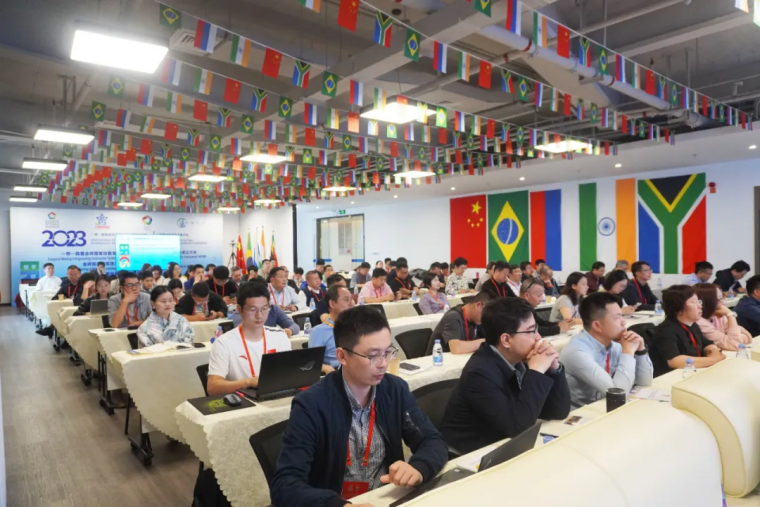
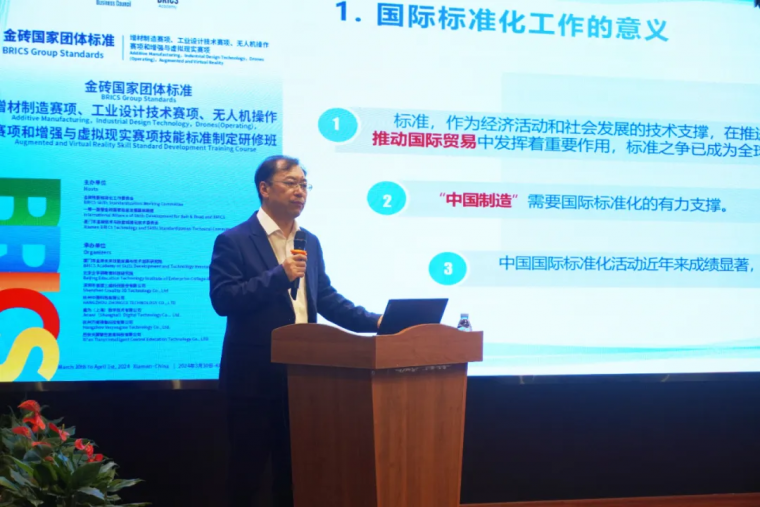 Dr. Liu Zhenying, President of the International Alliance of Skills Development for Belt & Road and BRICS, introduced the work agenda of the BRICS Skills Standardization Committee.
Dr. Liu Zhenying, President of the International Alliance of Skills Development for Belt & Road and BRICS, introduced the work agenda of the BRICS Skills Standardization Committee.
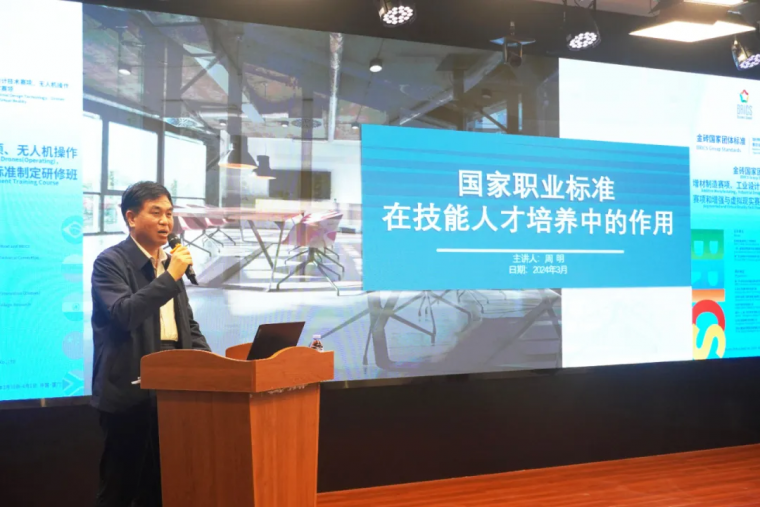 Zhou Ming explained the skill standards section, providing an overview of China’s National Occupational Classification and methodologies for developing occupational skill standards.
Zhou Ming explained the skill standards section, providing an overview of China’s National Occupational Classification and methodologies for developing occupational skill standards.
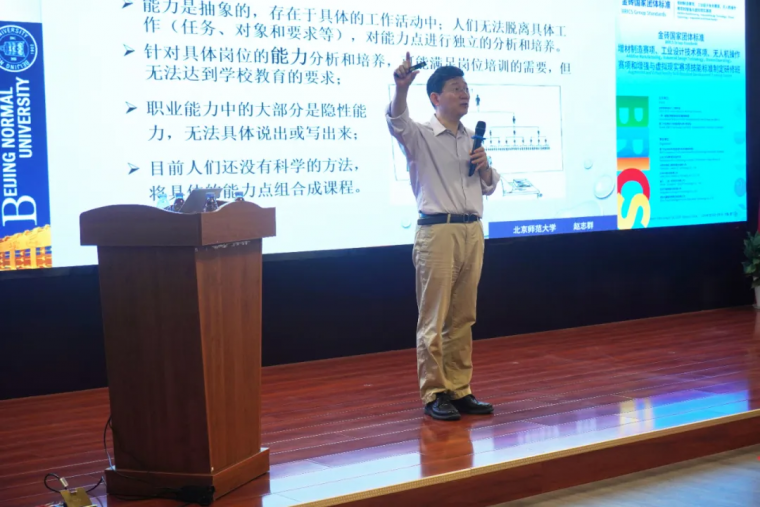 Professor Zhao Zhiqun elaborated on the curriculum standards section, discussing international curriculum standard theories and development methodologies.
Professor Zhao Zhiqun elaborated on the curriculum standards section, discussing international curriculum standard theories and development methodologies.
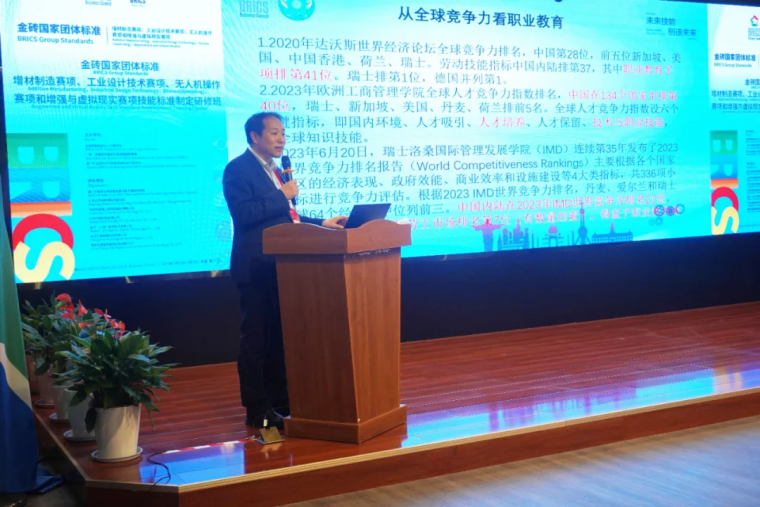 He Yong, Executive Dean of the Beijing Qixueyan Academy, presented the development plans and organizational structure for the four international skills standards.
He Yong, Executive Dean of the Beijing Qixueyan Academy, presented the development plans and organizational structure for the four international skills standards.
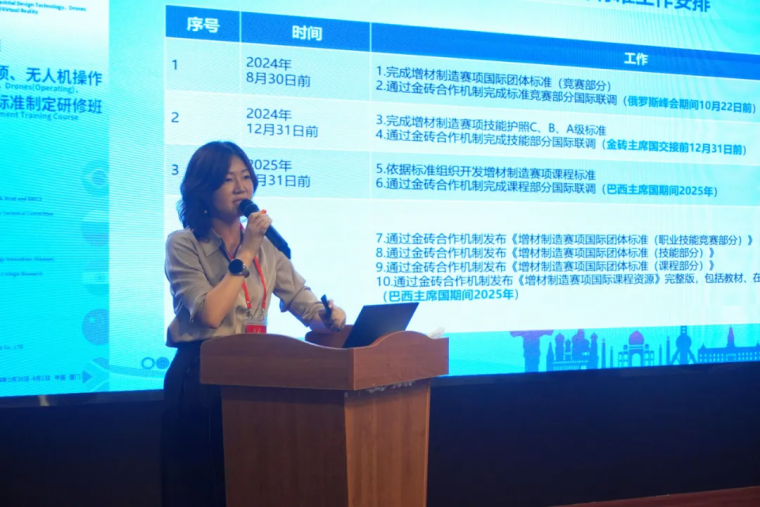 Cheng Lvsha shared the development concepts and practical approaches for the Additive Manufacturing standards.
Cheng Lvsha shared the development concepts and practical approaches for the Additive Manufacturing standards.
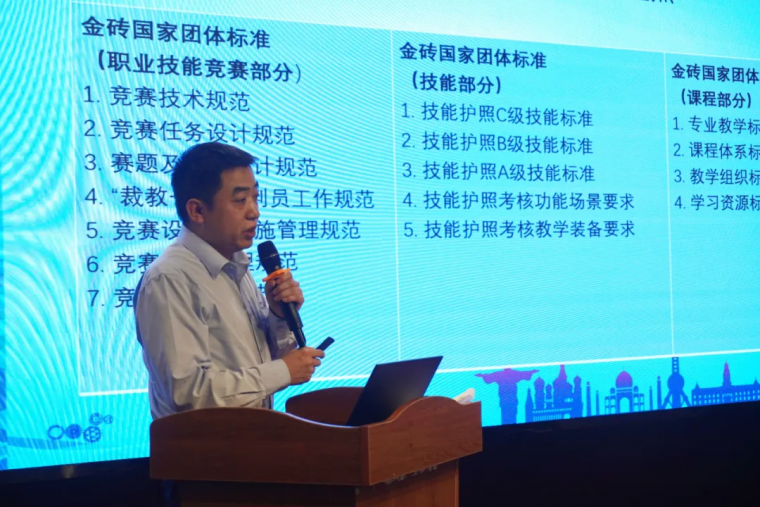 Pan Changchun introduced the design philosophy and implementation strategies for the Augmented and Virtual Reality standards.
Pan Changchun introduced the design philosophy and implementation strategies for the Augmented and Virtual Reality standards.
 Professor Yang Lin presented the standard development strategy for Industrial Design Technology.
Professor Yang Lin presented the standard development strategy for Industrial Design Technology.
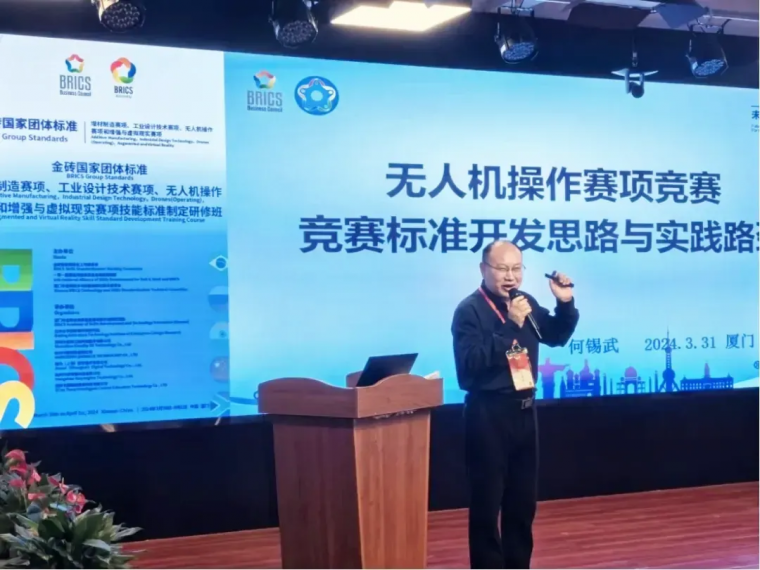 He Xiwu provided insights into the framework and execution of the UAV Operation standards.
He Xiwu provided insights into the framework and execution of the UAV Operation standards.
 Li Ang, Vice Dean at the Beijing Qixueyan Academy, introduced the design of outcomes linking standards to competitions, training, assessment, and base construction.
Li Ang, Vice Dean at the Beijing Qixueyan Academy, introduced the design of outcomes linking standards to competitions, training, assessment, and base construction.
The workshop also featured expert contributions from Russia and Ghana, delivered both in-person and via video speeches.
 Andrei Ermakov, Head of the Computer Science Department, School of Engineering and Information, Alatau International University (Russia), Co-founder of the Russian Association of Industrial Design Technologies, shared insights into Russia’s industrial design landscape.
Andrei Ermakov, Head of the Computer Science Department, School of Engineering and Information, Alatau International University (Russia), Co-founder of the Russian Association of Industrial Design Technologies, shared insights into Russia’s industrial design landscape.
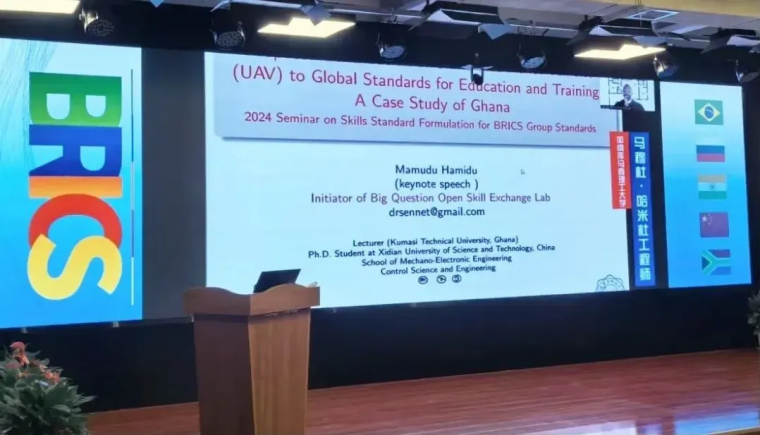 Engineer Mamudu Hamidu, UAV specialist from Kumasi Technical University (Ghana), presented Ghana’s experience in participating in UAV education and training standards development.
Engineer Mamudu Hamidu, UAV specialist from Kumasi Technical University (Ghana), presented Ghana’s experience in participating in UAV education and training standards development.
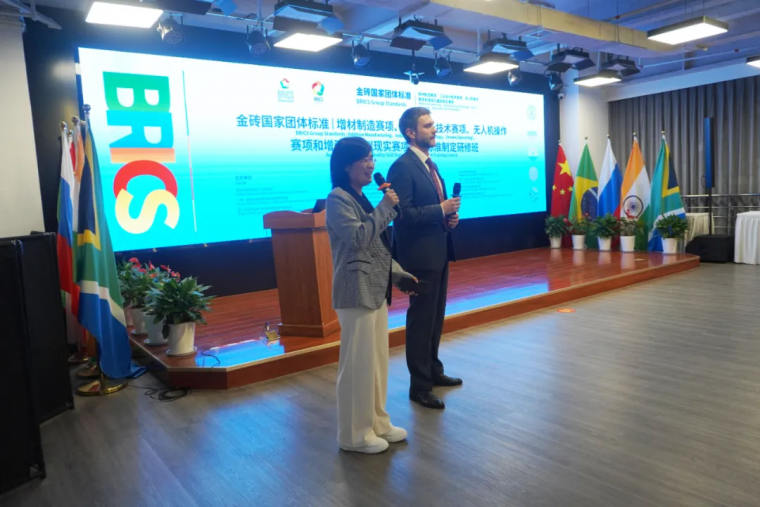 Yuri Mikhailovich Babonov, Director of China Affairs at the Russia House International Scientific and Technological Cooperation Association (RD ISTC), introduced the joint standard coordination work between China and Russia.
Yuri Mikhailovich Babonov, Director of China Affairs at the Russia House International Scientific and Technological Cooperation Association (RD ISTC), introduced the joint standard coordination work between China and Russia.
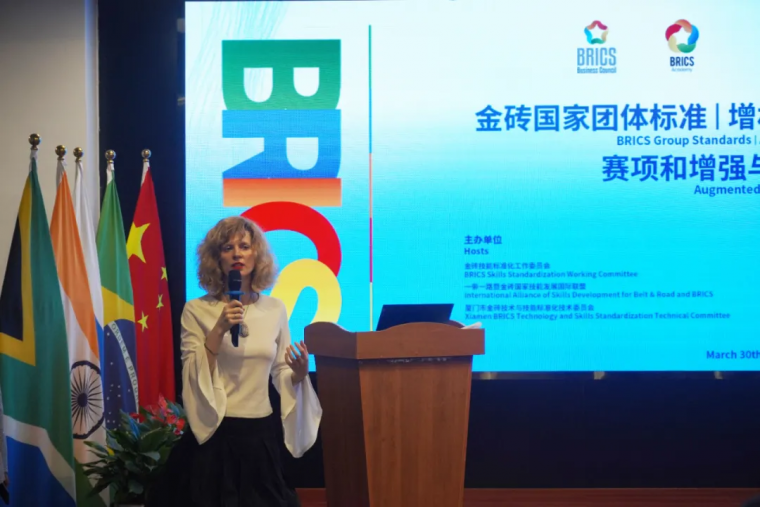 Dr. Maria Ulyanova, member of the Humanitarian and Cultural Cooperation Committee of the Russia-China Friendship Association and Director of the China Studies Center at the Academy for Research on the Problems of International Management (IRRIPU), delivered a speech on the far-reaching impact of BRICS skills standards development.
Dr. Maria Ulyanova, member of the Humanitarian and Cultural Cooperation Committee of the Russia-China Friendship Association and Director of the China Studies Center at the Academy for Research on the Problems of International Management (IRRIPU), delivered a speech on the far-reaching impact of BRICS skills standards development.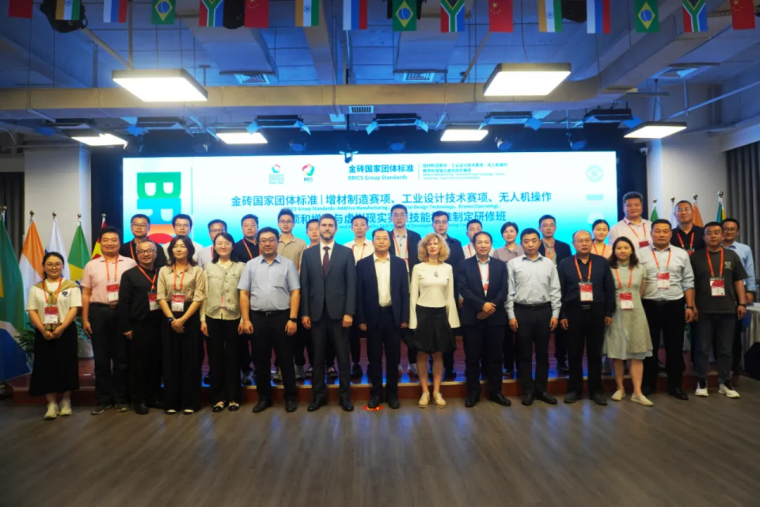
The event was attended by more than 170 experts, scholars, and trainees from countries including Russia, China, South Africa, Iran, and Ghana, in both online and offline formats.
Through a prior open call for participation, nearly 100 organizations from BRICS countries registered for the four standards development projects. In the next phase, the Beijing Qixueyan Academy of Educational Science and Technology, as the organizing unit, will coordinate the selection of chief and associate editors for the standards. Following the planned roadmap, the Academy will progressively complete the drafting and revision work, and begin applying the standards to skills competitions, virtual-physical integrated classrooms, and overseas initiatives in the second half of the year.
With these group standards as a foundation, the BRICS countries aim to promote pragmatic cooperation and exchange in the field of skills development, enhancing mutual recognition and collaborative innovation across national borders.
Related Reading
Recommended articles
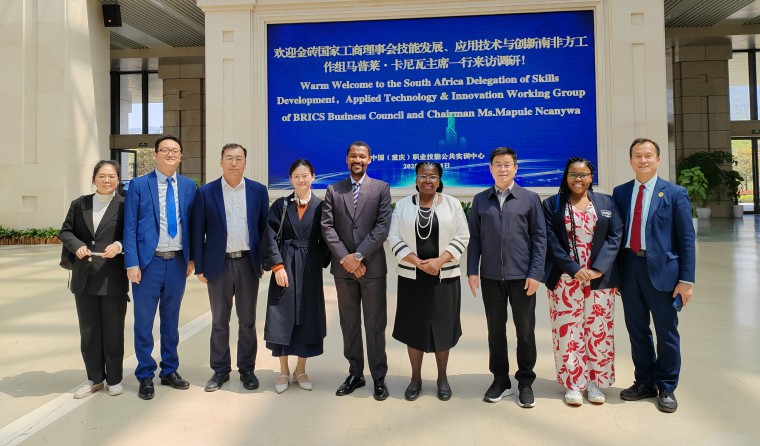
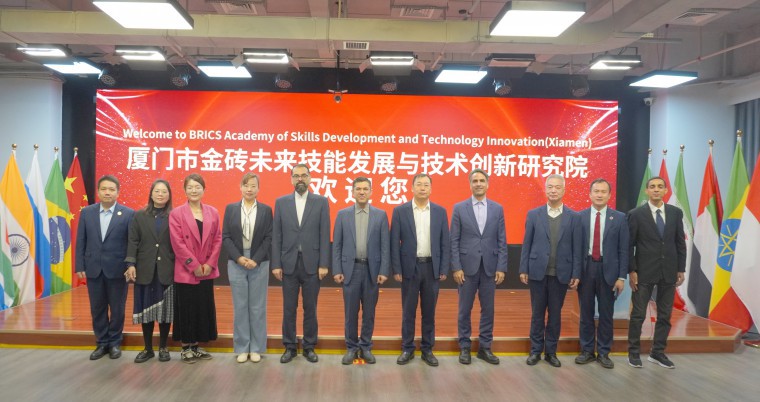
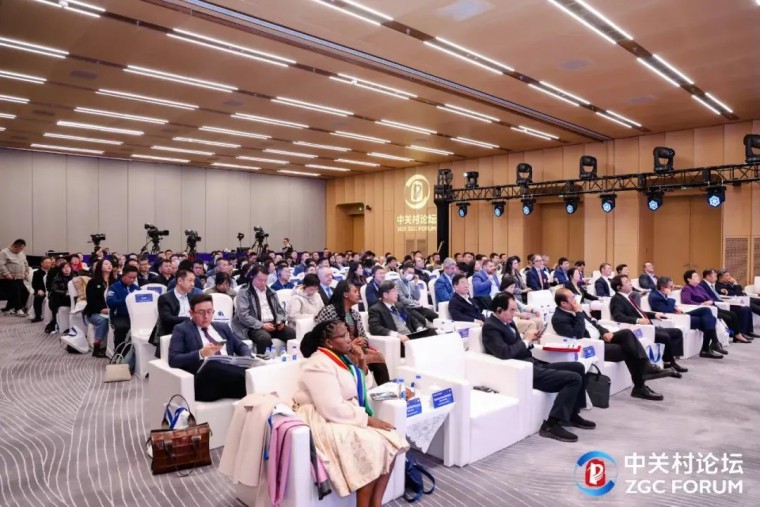

Popular articles


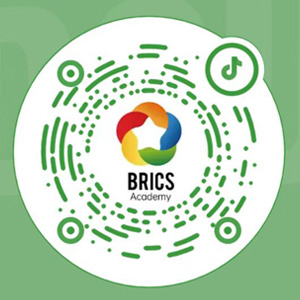
 闽ICP备12331232468号-1
闽ICP备12331232468号-1